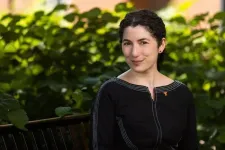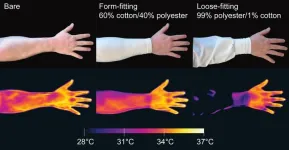(Press-News.org) Human wellbeing is connected to nature for food, climate regulation and culture, making the protection of nature a human rights matter.
Added to that, recent developments in international human rights law highlight that governments need to consider human-nature connections when making decisions that may affect the environment.
In a commentary published in npj Ocean Sustainability, an interdisciplinary group of researchers – including experts in ecosystem services, environmental governance, deep-sea ecology, and law – underscore that these developments should prompt a rethink of how any environmental decisions that hold the potential to impact biodiversity are made.
They argue this rethink should centre around assessments of foreseeable harm, and that any ability to foresee harms to human wellbeing is sufficient to prompt precautionary action to avert it.
Doing this would mark a significant evolution of current environmental decision-making which, they say, is presently “constrained by a perceived need for quantified certainty in impact assessment”.
Critically, the authors outline that human rights law shows that available evidence should be integrated into decision-making, even when considered uncertain.
Considering this, they have called for all environmental decisions globally to take account of key scientific and ecological evidence – including the knowledge and cultures held by local communities – and new ecosystem system service risk-based research methods that can provide an assessment of precaution, when they are making environmental decisions.
This, the researchers say, will ensure that the ecosystems vital for human wellbeing across the planet are appropriately accounted for in decision making.
The article was authored by researchers from the University of Plymouth and the University of Strathclyde, working as part of the One Ocean Hub – an international programme aiming to support fair and inclusive decision-making for a healthy ocean for people and planet.
Dr Holly Niner, Global Challenge Research Fellow at the University of Plymouth and lead author, said: “There are significant parts of our planet – for example, the deep ocean – that we currently know very little about. However, we know that these regions are critical for human wellbeing for global society. Uncertainty in understanding and lack of formalised, statistically certain evidence of the dependency of people to these regions should not be reason to exclude these connections in decisions-making that pose a potential risk of harm. If we are to protect the planet and human wellbeing, we need to consider the full picture and accept that biodiversity cannot and does not exist in a silo. This article makes the argument for addressing this and setting the critical connections between people and nature at the centre of decision-making.”
The study’s senior author Dr Sian Rees, Associate Professor of Social-Ecological Systems (Research) at the University of Plymouth, added: “Biodiversity loss is not just about a quantified decline in habitats and species, or a tradeable good in cost-benefit analysis. If we are to truly change our approach to protecting it now and for future generations, we need to challenge the current context for all environmental decision-making. We can start to do that by ensuring biodiversity loss is considered a human rights issue, and that environmental decision-making needs to align with advances in international human rights law.”
The challenges of environmental decision-making: the case of the deep ocean
They account for around 60% of Earth’s surface area, but large areas of the deep ocean remain completely unexplored. What is known about them, however, is that the habitats and biodiversity they support contributed to the health of the entire planet and global humanity.
Writing in the npj Ocean Sustainability article, the researchers highlight how it is possible to broadly describe the ecological and spiritual connections between people and the deep-sea via methods developed through ecosystem services research.
Accordingly, the authors argue, sufficient evidence is available to assess foreseeable harm and to integrate these values, and precautionary approaches, into any decisions that pose a potential risk loss or degradation to biodiversity and human wellbeing.
END
Scientists call for an update in environmental decision making that takes human rights into account
2024-08-23
ELSE PRESS RELEASES FROM THIS DATE:
Terahertz detection: a novel approach to real-time monitoring of perovskite ageing
2024-08-23
Hybrid perovskites have great potential for use in advanced electronic devices like solar cells and LEDs. However, one major issue holding them back is that they don't last as long as needed for widespread commercial use. As these materials age, their performance drops, which is a big problem for both researchers and companies. To tackle this issue, it's important not only to improve the stability of these perovskites but also to develop methods for detecting how they age in real-time. By understanding how these materials degrade over time, we can make them more durable and efficient.
In a recent study, researchers led by Prof. Yiwen Sun at Shenzhen University used the terahertz ...
Colorful traits in primates ease tensions between groups
2024-08-23
Primate ornamentation plays a crucial role in communication not only within social groups but also between them, according to a new study. The research reveals that the males of species with overlapping home ranges often display vibrant colors or elaborate features, traits that may help reduce intergroup aggression by enabling quick assessments of potential rivals.
Ornaments are sexually selected traits that serve as powerful signals, often indicating an individual’s genetic quality, health or physical strength. These differences ...
Sylvester Cancer Tip Sheet for August 2024
2024-08-23
AUGUST 2024 TIP SHEET: A mouthwash-like rinse to predict head and neck cancer recurrence, new research identifies biomarkers to predict which colon cancer patients benefit from adjuvant chemotherapy, the Dolphins Cancer Challenge and StacheStrong team up to boost brain cancer research, the CDC issues anal cancer screening guidelines for HIV patients based partly on research at Sylvester, and three Sylvester physicians who become the latest early-career faculty scholars are highlighted in this month’s tip sheet from Sylvester Comprehensive ...
Weight loss drug’s heart benefits extend to people with heart failure
2024-08-23
The anti-obesity medication semaglutide may help to prevent heart attacks and other major adverse cardiac events among overweight people who have cardiovascular disease, whether or not they also have heart failure, according to a new study led by UCL’s Professor John Deanfield.
The results follow previous research* from the same international team finding that weekly injections of semaglutide were linked to a 20% reduction in major adverse cardiac events (MACE) such as heart attacks and strokes for people with obesity or who were overweight and had cardiovascular disease.
The ...
Declining senses can impact mental health and loneliness in aging adults
2024-08-23
Most people — up to 94% of U.S. adults — experience at least some dulling of their senses with age, finding themselves squinting at screens, craving stronger flavors, and missing snatches of conversations more and more frequently. Researchers at the University of Chicago Medicine are looking into how these changes can go beyond mere inconvenience and actually worsen overall mental health in older adults.
“When your senses decline, you can't experience the world as well,” said Jayant Pinto, MD, a physician ...
NASA’s EXCITE mission prepared for scientific balloon flight
2024-08-23
Scientists and engineers are ready to fly an infrared mission called EXCITE (EXoplanet Climate Infrared TElescope) to the edge of space.
EXCITE is designed to study atmospheres around exoplanets, or worlds beyond our solar system, during circumpolar long-duration scientific balloon flights. But first, it must complete a test flight during NASA’s fall 2024 scientific ballooning campaign from Fort Sumner, New Mexico.
“EXCITE can give us a three-dimensional picture of a planet’s atmosphere and temperature by collecting data the whole time the world orbits its star,” said Peter Nagler, the mission’s principal ...
New gels could protect buildings during wildfires
2024-08-23
As climate change creates hotter, drier conditions, we are seeing longer fire seasons with larger, more frequent wildfires. In recent years, catastrophic wildfires have destroyed homes and infrastructure, caused devastating losses in lives and livelihoods of people living in affected areas, and damaged wildland resources and the economy. We need new solutions to fight wildfires and protect areas from damage.
Researchers at Stanford have developed a water-enhancing gel that could be sprayed on homes and critical infrastructure to help keep them from burning during wildfires. The research, published Aug. ...
U.S. National Science Foundation awards UT $18 million to study factors that lead to pandemics
2024-08-22
Professor of Ecology and Evolutionary Biology Nina Fefferman became a mathematician because she loves puzzles. She’s just been awarded $18 million from the U.S. National Science Foundation to solve one puzzle that has the potential to change the world: how, when and why an infection in a population will spread, or cause an epidemic or pandemic, rather than dying out.
Fefferman, director of the National Institute for Modeling Biological Systems and associate director of the UT One Health Initiative at the University ...
Mosquitoes sense infrared from body heat to help track humans down
2024-08-22
(Santa Barbara, Calif.) — While a mosquito bite is often no more than a temporary bother, in many parts of the world it can be scary. One mosquito species, Aedes aegypti, spreads the viruses that cause over 100,000,000 cases of dengue, yellow fever, Zika and other diseases every year. Another, Anopheles gambiae, spreads the parasite that causes malaria. The World Health Organization estimates that malaria alone causes more than 400,000 deaths every year. Indeed, their capacity to transmit disease has earned mosquitoes the title of deadliest ...
DOD grants CU researchers $5 Million to study antibiotic-resistant wound infections in Ukraine
2024-08-22
Faculty members in the Department of Emergency Medicine at the University of Colorado School of Medicine have been awarded $5 million by the U.S. Department of Defense to work with partners in Ukraine on clinical and logistical challenges associated with modern large-scale combat operations and prolonged casualty care.
The overarching program — Research and Scalable Infrastructure to Improve Outcomes on the Front Lines of Ukraine by Advancing Treatment and Evaluation (RESOLUTE) — is focusing on collecting data related to antibiotic-resistant wound infections, which have substantially increased amid the military conflict.
The initial project — ...





